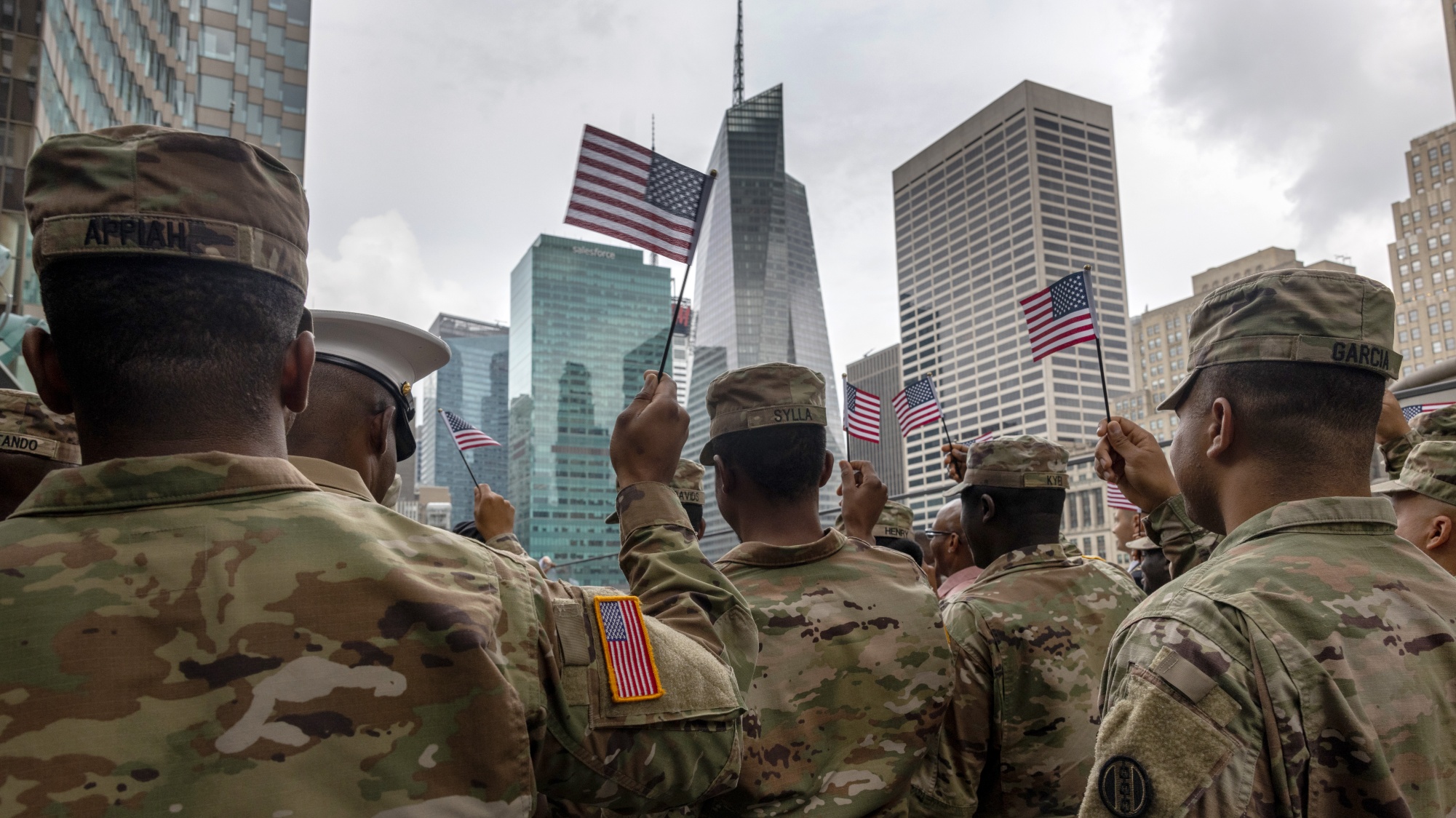
Immigrant soldiers have served in every significant US conflict since the Revolutionary War, but their presence in the military is often overlooked. When sociologist Sofya Aptekar went searching for immigrant veterans to interview for her new book, Green Card Soldier: Between Model Immigrant and Security Threat, many workers in veteran support offices told her they didn’t exist. “People didn’t understand that you could be in the US military without being a US citizen,” she told me.
In fact, about 7,000 people with green cards join the military each year, according to the Department of Defense. The Immigration and Nationality Act even provides a more streamlined path to citizenship for those who enlist, although even that has become a bureaucratic purgatory for many immigrant soldiers thanks to policy changes that have made the pursuit of citizenship more difficult in the last two decades.
In her book, Aptekar, an associate professor of urban studies at the City University of New York, takes a closer look at the experience of these “green card soldiers”—immigrants in the US military who have lawful permanent residency. Immigrants enlist in the military for many of the same reasons that American-born citizens do, she writes: patriotic duty, a longing for adventure, the desire to embody some sort of masculine ideal, and a lack of employment and educational opportunities. But for many immigrants, military service has additional layers of meaning. Some see enlistment as the height of belonging: a way to integrate, establish their eligibility for citizenship, and demonstrate their allegiance to a country that sees them as owing it a debt. In 2015, for example, Congressman Ruben Gallego (D-Ariz.), who was advocating for a defense bill amendment that would allow for undocumented youth to enlist in the military, spoke about how these immigrants should “have the opportunity to serve and repay their country.”











